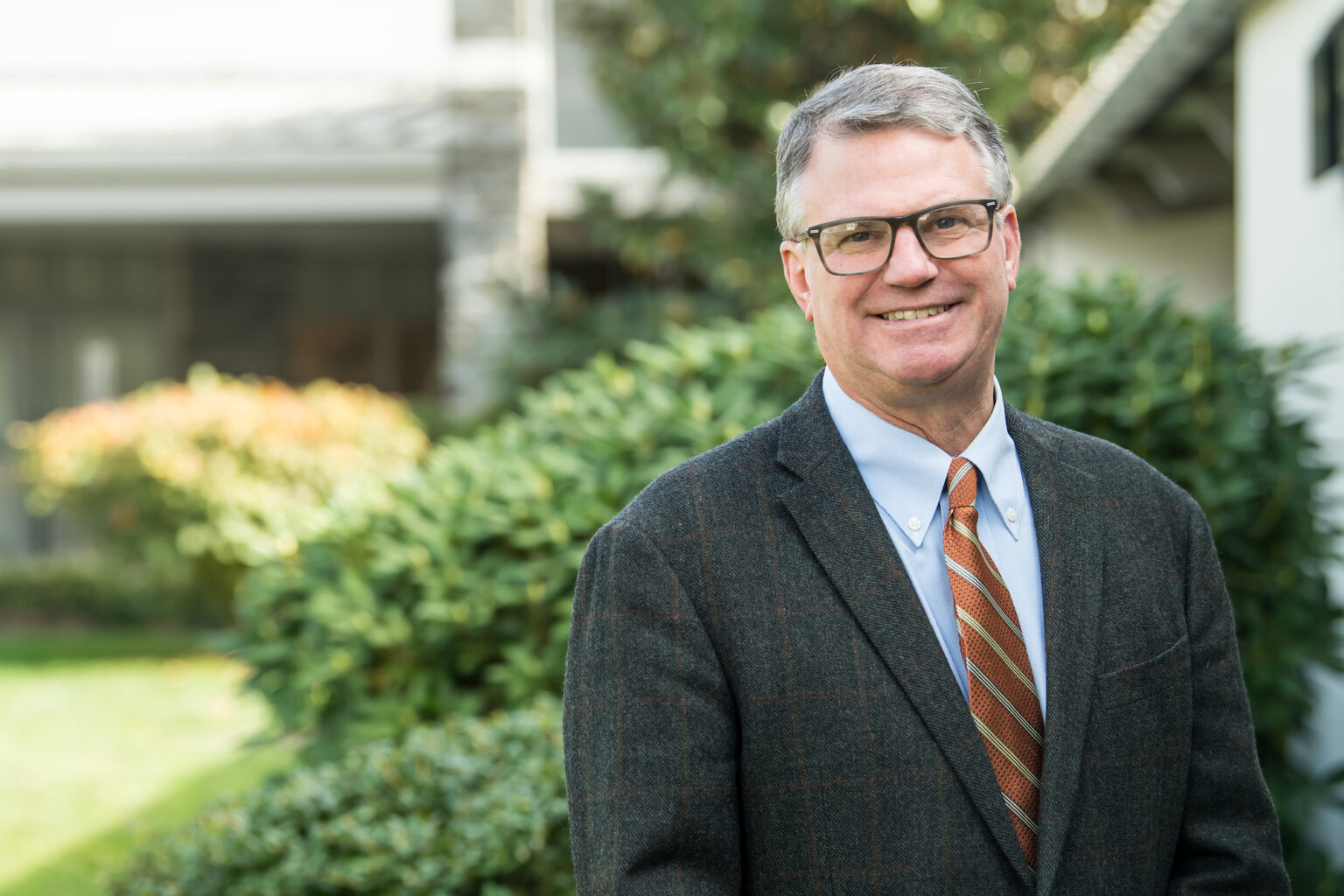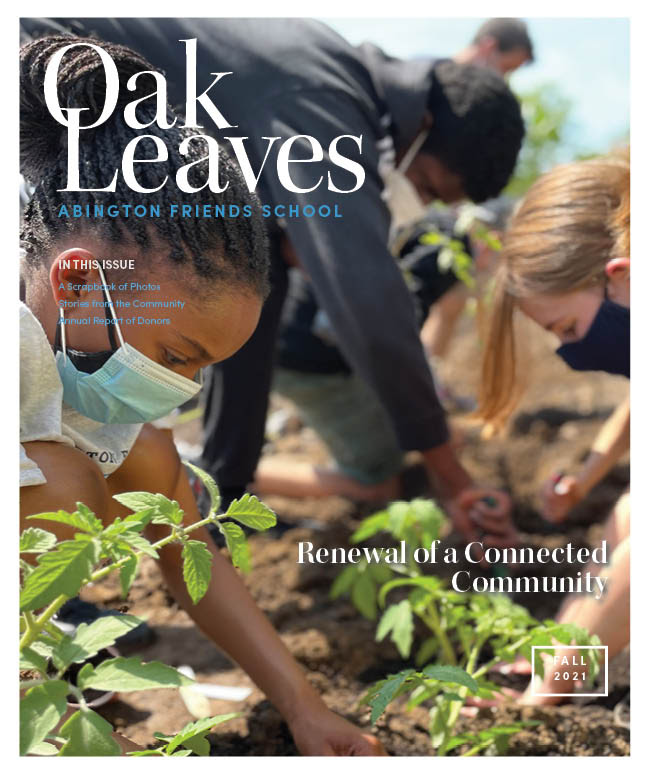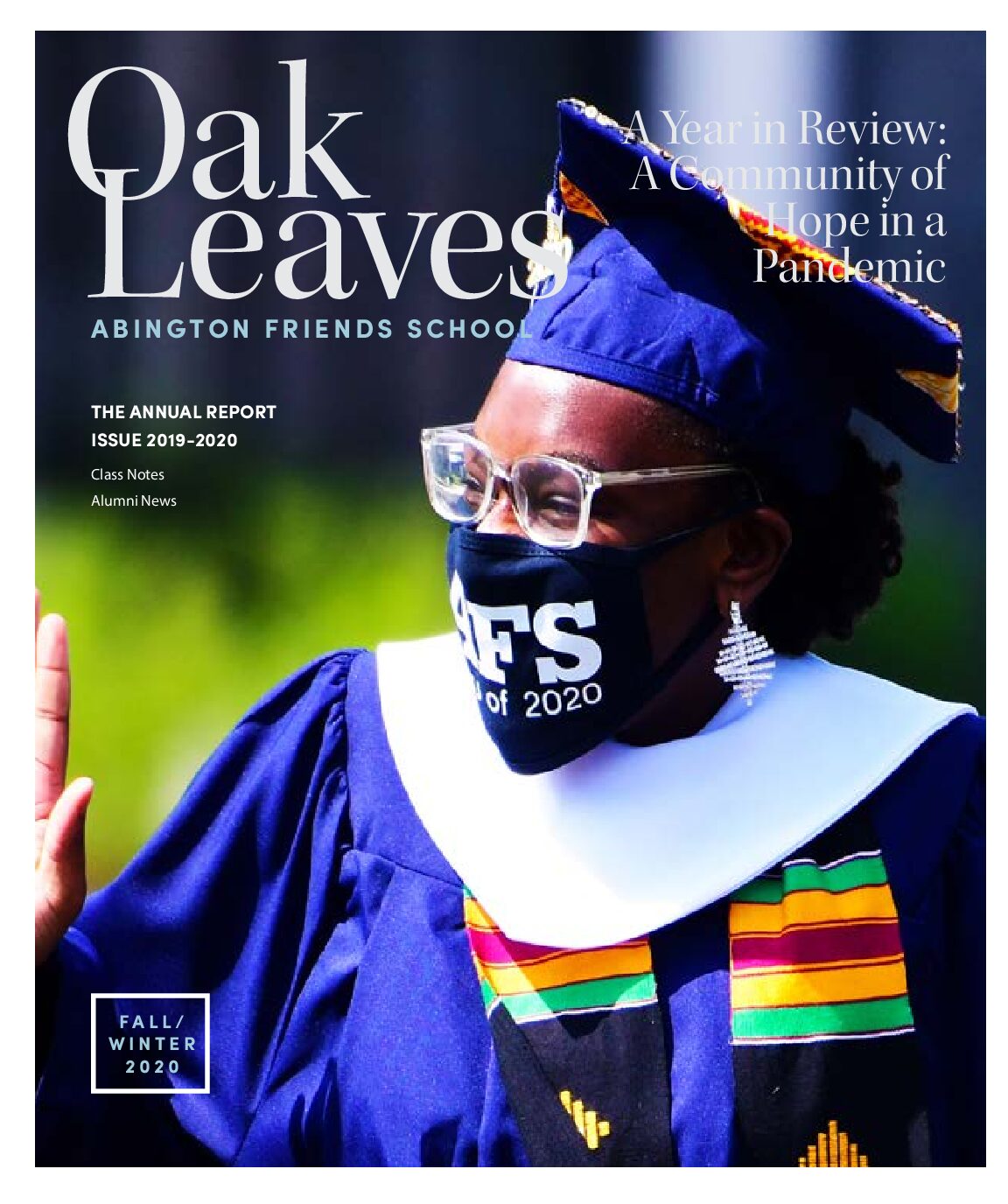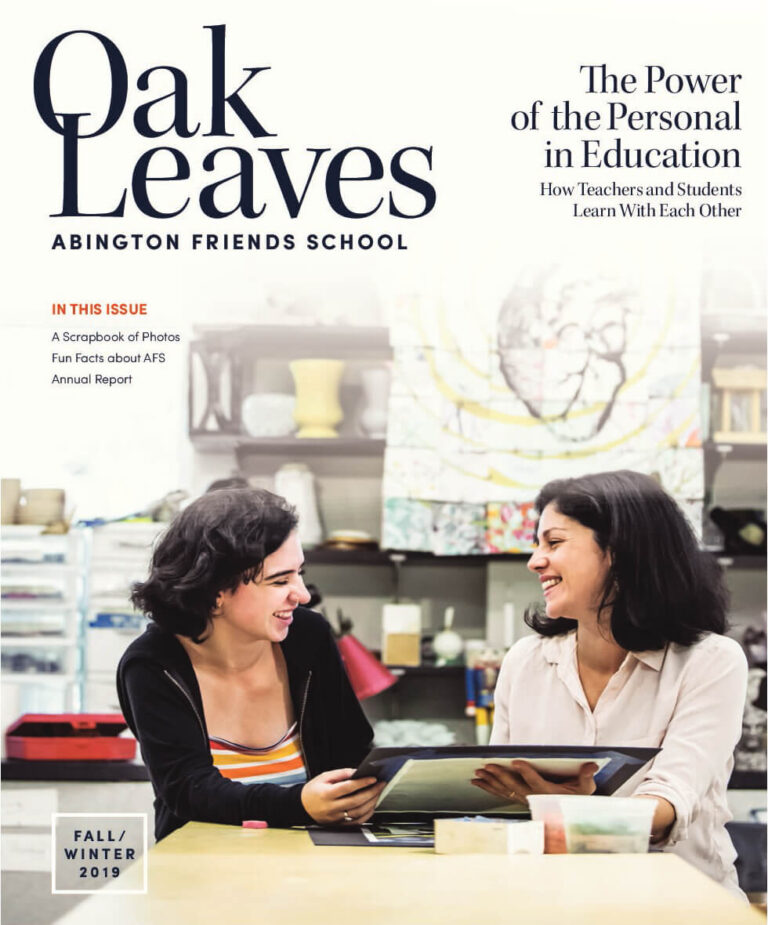Message from the Head of School

For 325 years, Abington Friends School has adapted and innovated to meet the ascendant needs and opportunities of each successive generation. Today, we see a world that has changed profoundly over the past several decades, and we believe that both the imperatives and potential of education have shifted in turn. After an intensive two-year planning process, we as a school community have reached a new moment of clarity about what education can and must be at Abington Friends School as we move together into a fourth century of Friends education. We have bold convictions about how schools should be evolving to reflect the nature of childhood today, the world our students are entering as young adults and the potential of our Friends school to be a force for positive social change. This is a critically important juncture and one full of bright possibilities.
We see several broad shifts that should drive innovation in an AFS education:
Childhood has changed. Previous generations were shaped by a great deal of freedom and independence outside of school – building social skills, imagination, resilience, and resourcefulness apart from the continual supervision of adults. How can the school day provide the robust opportunities needed for building these critical strengths?
Technology and digitally mediated experience are ubiquitous today, bringing new levels of connection to people and resources, but replacing too much of the physical play and varied natural and tactile experiences that nourish the development of healthy bodies, minds, and spirits. How can school provide this rich tapestry of daily experience while promoting healthy engagement with technology?
Our children are going to school in a profoundly diverse community, a powerful foundation for an education that previous generations did not experience. It shifts our worldview, our understanding of the past, present and future of our nation and pushes us to a new understanding of equity, justice and engagement imperatives. How can a fully developed, widely shared vision of equity, inclusion and dignity at AFS lead us to our full potential as a diverse community?
The larger world has never been more accessible and available to teachers and students, providing unprecedented opportunities to ground an outstanding academic education in experiential learning. Connections to practitioners in all fields, to authors, native speakers of languages, to culture and arts all over the world are ever-present. Schools of the twentieth century were built around comparatively very limited resources and most experience was mediated through books alone. How can an AFS education be transformed by the power of wide, direct experience?
Our understanding of learning has advanced dramatically from the previous generation. Research in cognitive development, connections between social-emotional and intellectual growth and research-based practices for fostering independent, resourceful learners is expanding our ideas about what education at its best looks like. The learning lives and focused growth of teachers has become the engine for innovation and program development. How can we create the R&D space for teachers to learn, grow and innovate?
Charting a New Course Forward
The openness and uncertainty of the world today demands that our students will need to actively create and construct lives of purpose, meaning and contribution rather than following rote steps and simply fulfilling the expectations of others. Forging connections between what they care about, their strengths and the needs of the world around them will provide a deeper sense of meaning, motivation and direction to their education and the roles they will be growing into.
The shifts and societal changes we observe do not lessen the centrality of the powerful academic experience of an AFS education. The skills of research, analysis, critical thinking, writing, problem-solving and multiple literacies remain ever vital and essential. However, they do invite the development of richer experiential contexts for that academic education, of ethical and moral frameworks for engaging issues that matter, and a strong sense of personal responsibility and purpose as an anchor for intellectual accomplishment. They invite a rebalancing of the portfolio of a school day and creative new thinking about the relationship between time in the school day to time outside of it. These fundamental shifts argue for a school day that is richly social, varied in range of experiences both indoor and out of doors, protected from an excess of technology and mediated experience, and full of opportunities for agency, leadership and the making of things together.
An outstanding education today must be designed for the world our children are growing up in and into. It must meet their needs for full and wholesome development as human beings as the best and only preparation for an unknown future and for the thrilling challenges of making change in the world. An outstanding education must seize the unprecedented opportunities for transformational learning through experience and be shaped by teachers deeply engaged in ongoing learning and creative program development. And it must be responsive to the timeless Quaker imperative of helping students nurture a sturdy sense of self, grounded in their own rich inner lives and in knowing “that of God” in themselves and others. This is what the fourth century of Friends education at Abington Friends School can and must be.
These are the aims that have shaped our new Strategic Plan, which will guide Abington Friends’ progress over the next three to five years. It is a plan written with the confidence of a strong school growing stronger–and one presented with a note of healthy impatience. We have much good work to do and are eager to join together in doing it!
On behalf of the AFS Strategic Planning Committee and with thanks to all whose ideas have enriched this process,

Head of School


